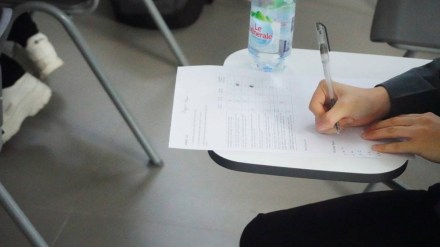The Lok Sabha on Tuesday cleared a new anti-cheating Bill during the ongoing Budget Session of Parliament. The Bill will focus on students appearing or are planning to appear for higher education entrance exams, school exams or government jobs exams in the country. The anti-cheating Bill suggests punishing students or offenders who manage to leak exam question papers before a certain examination.
Under the Public Examinations (Prevention of Unfair Means) Bill, the offender might face up to 10 years in jail and a fine of Rs 1 crore. The legislation makes all offences under the Bill cognizable, non-bailable, and non-compoundable. This means that the police can take action without a warrant, the accused won’t be eligible for bail, and offences cannot be settled through compromise.
According to media reports, Junior Union Education Minister Rajkumar Ranjan Singh has shared the definition of exams, “Any exam wants to test the real level, the knowledge and mental capability, of all candidates. If there is an unfair advantage to any one person, or group of people, this is not good for the growth of the nation.”
The bill, which is awaiting approval from the Rajya Sabha and President Droupadi Murmu, extends its reach to cover government employees and third-party agencies, including digital platforms hosting competitive exams, found guilty of leaking question papers.
The legislation also mandates the establishment of a high-level technical committee to recommend measures ensuring the security of the examination process, especially as exams increasingly move to digital platforms.
Key recommendations from the committee will include:
- Robust IT security systems.
- Surveillance of examination centers.
- A minimum standard for physical and digital infrastructure at exam centers.
The bill will apply to exams conducted by various authorities, including the Union Public Service Commission (civil service entrance exams), Staff Selection Commission (posts in union ministries), Railway Recruitment Boards (certain jobs in Indian Railways), Institute of Banking Personnel Selection (public sector banks excluding State Bank of India), and the National Testing Agency (entrance exams for higher educational institutions). The comprehensive scope of the bill aims to curb cheating and ensure integrity in a variety of competitive exams across the country.
